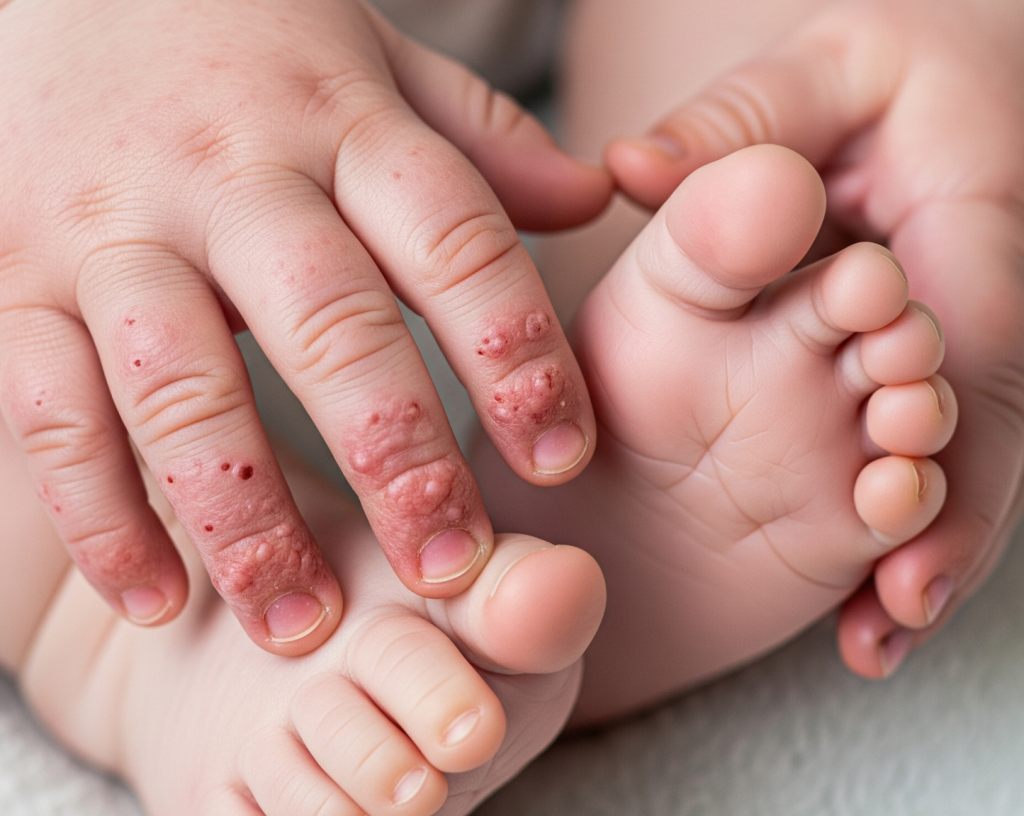Zinc deficiency happens when the body doesn’t get or absorb enough zinc, an essential trace mineral needed for growth, immune function, wound healing, reproduction, and taste/smell perception.

Zinc deficiency is a nutritional disorder that occurs when the body does not get enough zinc to meet its physiological needs, either due to inadequate intake, poor absorption, or increased requirements. Since zinc is an essential trace element involved in growth, immune defense, wound healing, reproduction, and numerous enzymatic reactions, its deficiency can lead to impaired growth and development, frequent infections, delayed wound healing, skin and hair changes, and disturbances in taste, smell, and cognition. It may present as a mild, moderate, or severe condition and can affect individuals of all ages, with children, pregnant women, and people with chronic illnesses being most at risk.

Causes
- Inadequate dietary intake – low consumption of zinc-rich foods (meat, shellfish, legumes, seeds, nuts).
- Malabsorption – conditions like celiac disease, Crohn’s disease, or chronic diarrhea.
- Increased requirements – pregnancy, breastfeeding, rapid growth in children/adolescents.
- Chronic illness – liver disease, kidney disease, diabetes.
- High phytate diet (cereals, legumes without soaking/fermenting) – phytates bind zinc and reduce absorption.
- Excess alcohol consumption – reduces absorption and increases loss.
- Certain medications – diuretics, ACE inhibitors, some antibiotics.
Symptoms
Mild to severe zinc deficiency can present as:
- Growth retardation (in children)
- Delayed wound healing
- Impaired immunity → frequent infections
- Hair loss (alopecia)
- Skin lesions / dermatitis (often around mouth, hands, or diaper area in infants)
- Loss of appetite, weight loss
- Impaired taste (hypogeusia) or smell
- Night blindness (due to vitamin A metabolism disturbance)
- Delayed sexual maturation and infertility
- Cognitive impairment, mood changes
Treatment & Prevention
- Dietary sources of zinc:
- Oysters (richest source), beef, lamb, pork, poultry
- Pumpkin seeds, sesame seeds, cashews, chickpeas, lentils
- Fortified cereals
- Supplementation: Zinc sulfate, acetate, or gluconate
- Food preparation techniques: Soaking, sprouting, fermenting grains and legumes to reduce phytates and improve zinc absorption.
- Treating underlying causes (e.g., malabsorption, chronic illness).
